This content originally appeared on Bits and Pieces - Medium and was authored by Eden Ella
Revolutionize your translation workflow with Bit: Reusable components, version control, and automated impact analysis.
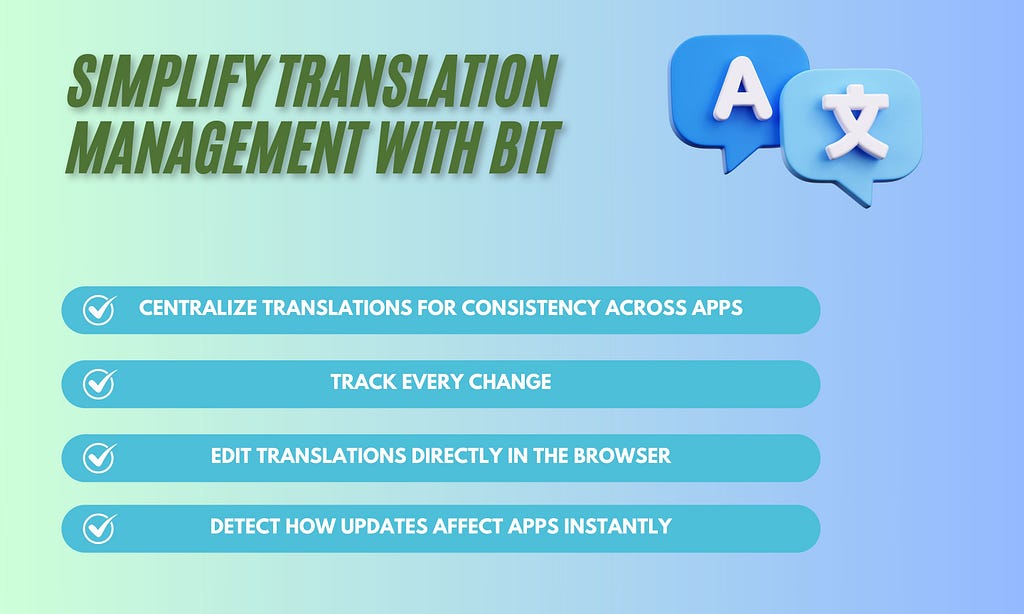
Managing translations in a modern application is a challenge, especially as teams and apps grow and expand across multiple platforms and languages.
Bit, a platform for creating, sharing, and managing reusable components, is often used to streamline development and standardize UI and logic across applications or different parts of a distributed application (MFEs, microservices, etc).
The same approach, can transform translations into shareable, versioned, and reusable assets. This blog explores how Bit simplifies translation management while ensuring scalability, consistency, and ease of collaboration.
Check out this collection of translation components. Notice how ‘Spanish’ and ‘Italian’ use the ‘English’ translation as the source of truth for their schema.
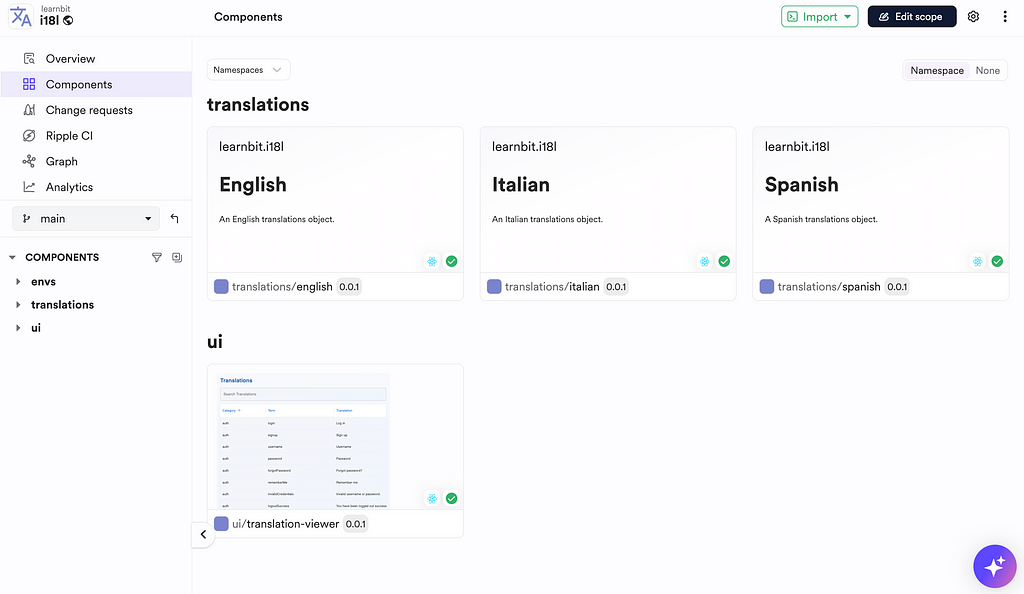
I apologize in advance for any inaccuracies in the translation. I am not a native speaker of Italian or Spanish, and the translations were generated using ChatGPT. Thank you for your understanding. 🙏
1. Reusable, Shareable Translation Components
With Bit, each translation becomes a Bit component, a standalone, reusable entity that acts as the source of truth. These components can be shared across multiple apps and micro frontends, and installed as individual npm packages. This ensures that:
- Translators and developers access the same up-to-date translations.
- Translations can be reused across projects, reducing duplication and inconsistencies.
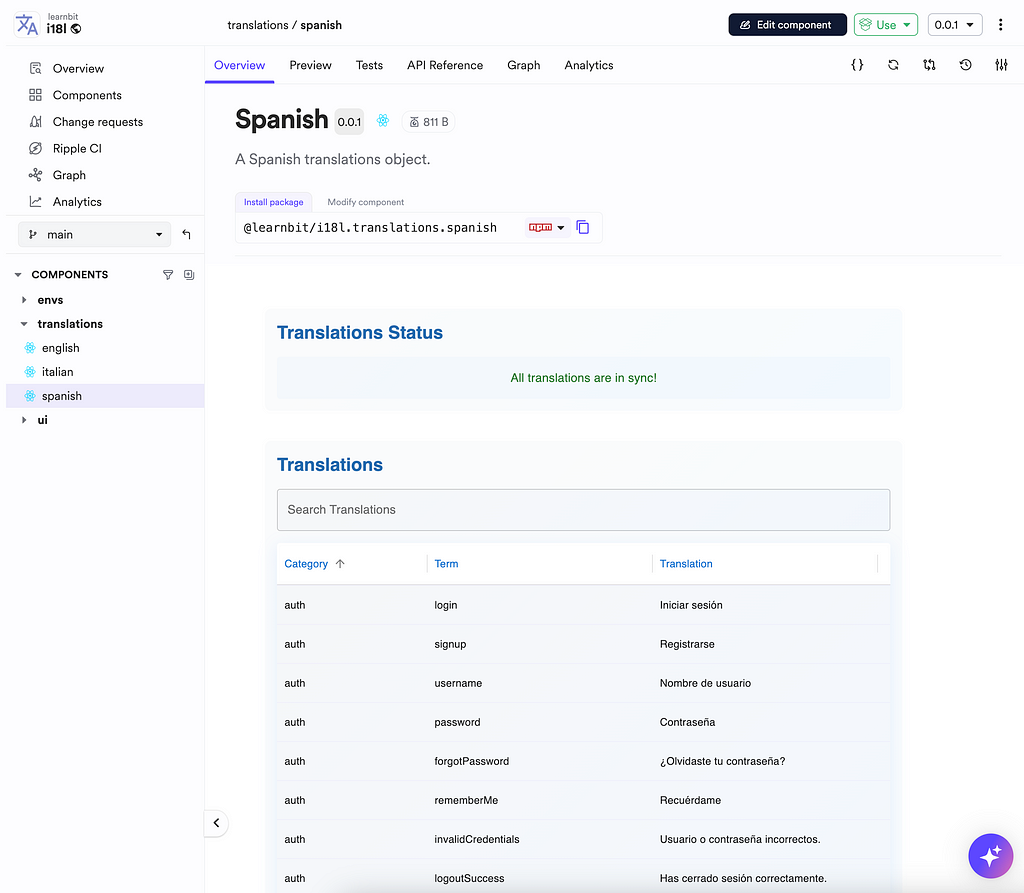
2. Versioned Translations for Change Tracking
Every Bit component is independently versioned, enabling precise tracking of changes. This is especially crucial for translations, where even minor edits can impact user experience. Versioning allows you to:
- Maintain a history of changes for auditing and rollback.
- Synchronize updates across dependent apps and components seamlessly.
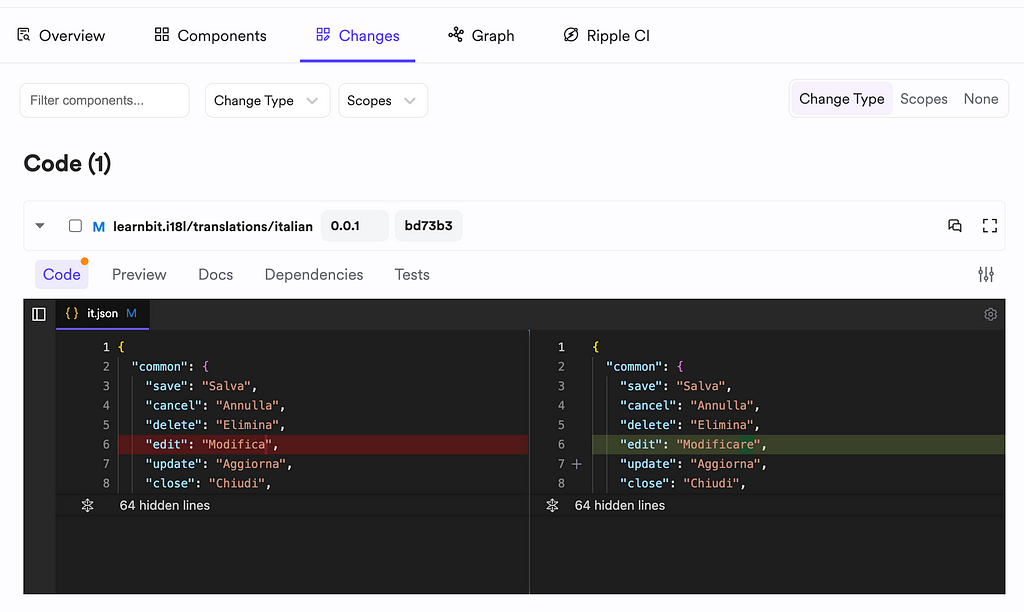
3. Easy Editing Without Complex Setups
Translations are often maintained by non-technical users like linguists or content managers. Bit’s cloud-based editing makes the process straightforward:
- Edit components directly on the Bit platform using just a browser.
- Avoid the need for local setup or understanding the entire project structure.
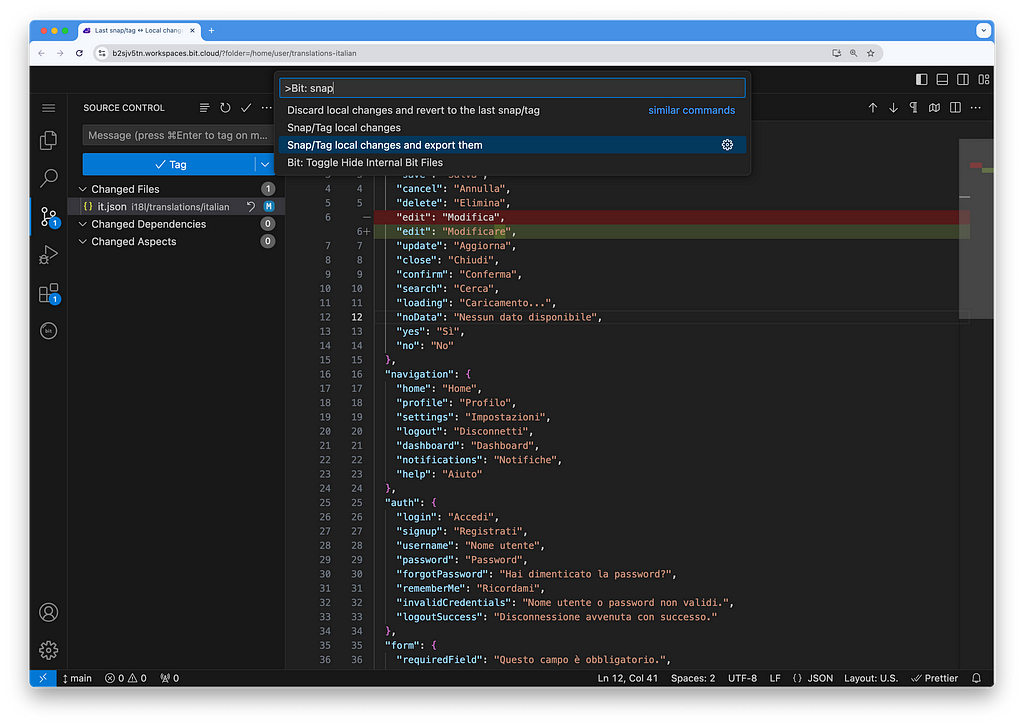
Additionally, changes can be reviewed and merged via Bit’s change request workflow, ensuring high-quality updates without bottlenecks.
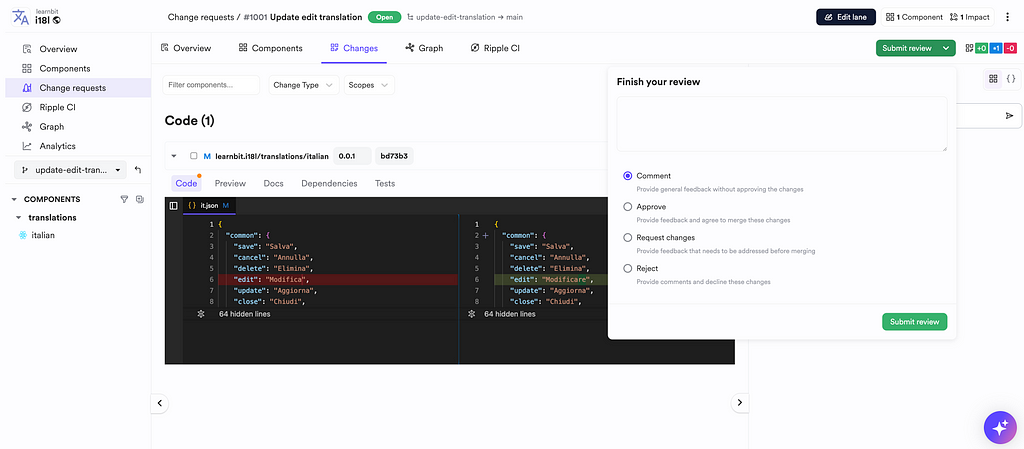
4. Define Standards with Hierarchical Dependencies
Bit allows you to use one translation as a standard for others. This hierarchical setup ensures:
- Consistency across all translations by propagating changes from the source language.
- Automatic detection of missing keys or schema mismatches in dependent translations.
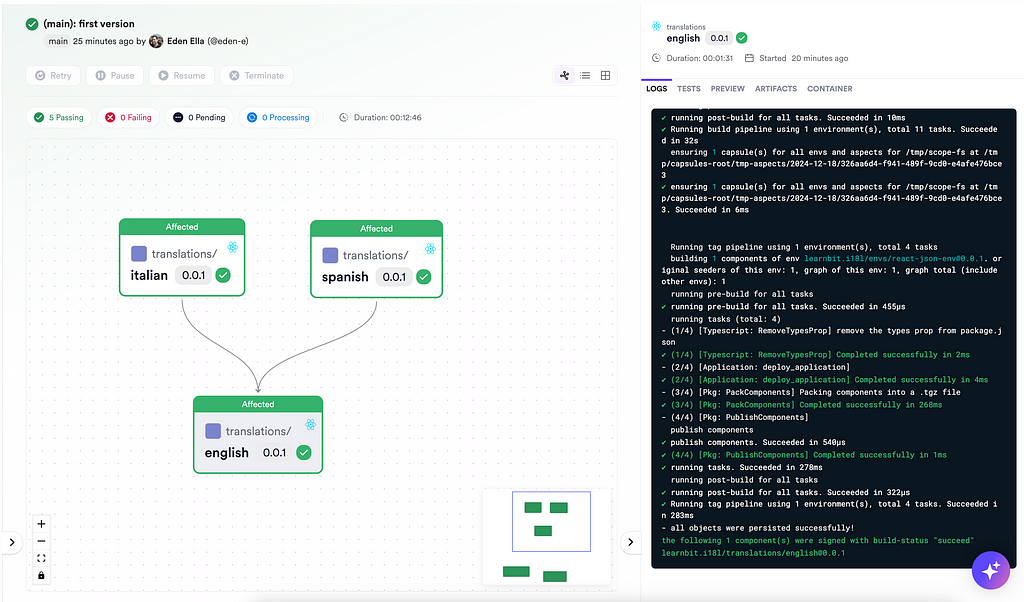
Bit’s automated testing and documentation capabilities dynamically highlight discrepancies, enabling faster resolution.
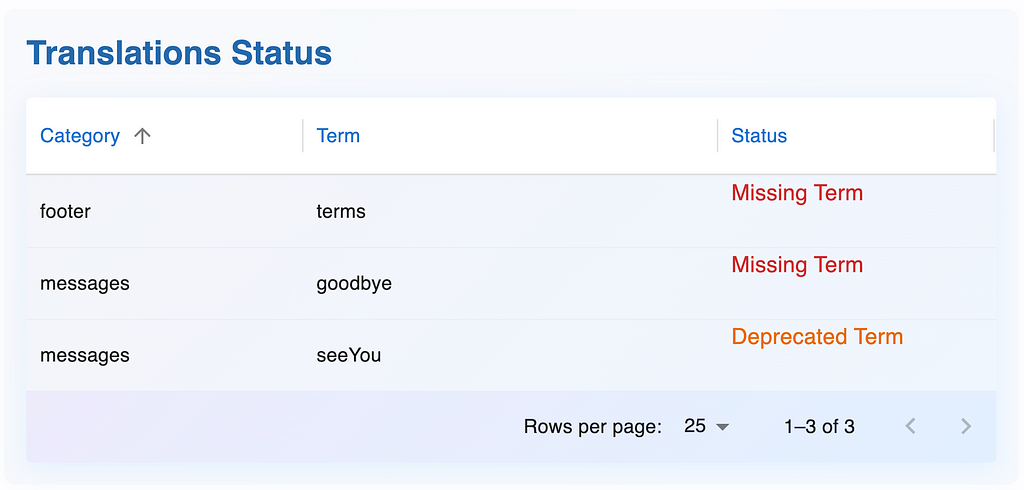
6. Impact Visibility Across Apps
Bit’s dependency insights show the ripple effects of translation updates. When a translation component is updated, Bit detects affected components and apps, providing visibility into:
- Apps or components relying on outdated translations.
- Potential issues caused by schema changes in translations.
7. Comprehensive Documentation for Transparency
Each translation component on the Bit platform comes with a detailed component page. This page serves as a centralized hub for:
- Examples showing where and how translations are used.
- Dependency graphs highlighting relationships between translation components and apps.
- Notes on discrepancies or issues, such as missing keys in a dependent language.
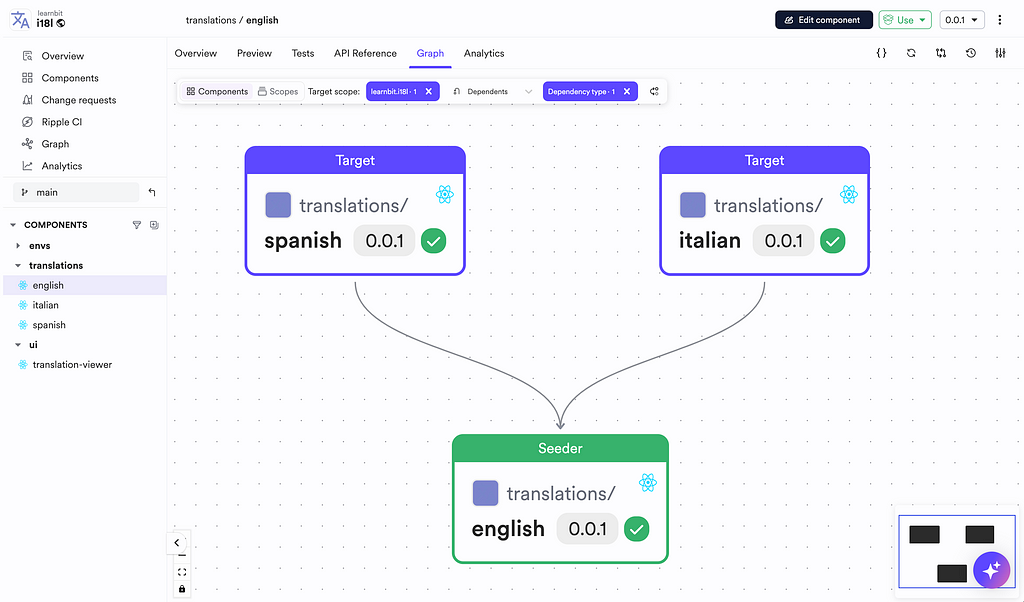
8. Discoverability with Bit’s Platform Search
Bit Platform provides robust search and filtering tools to find specific components quickly. Translators, developers, or stakeholders can locate the required translation components based on:
- Keywords (e.g., login-error-messages).
- Tags or namespaces for grouping related translations.
This discoverability reduces the friction of navigating large codebases, especially in multilingual apps.
Conclusion
Bit’s component-driven approach transforms the way translations are handled in modern applications. By making translations reusable, version-controlled, and readily accessible, Bit simplifies localization, ensures consistency, and enhances collaboration between developers and translators.
When paired with Bit’s platform features — such as direct component editing, change reviews, and AI-powered assistance — translation workflows become more efficient and seamless.
Scaling App Localization and Translation was originally published in Bits and Pieces on Medium, where people are continuing the conversation by highlighting and responding to this story.
This content originally appeared on Bits and Pieces - Medium and was authored by Eden Ella
Eden Ella | Sciencx (2024-12-18T14:27:04+00:00) Scaling App Localization and Translation. Retrieved from https://www.scien.cx/2024/12/18/scaling-app-localization-and-translation/
Please log in to upload a file.
There are no updates yet.
Click the Upload button above to add an update.
